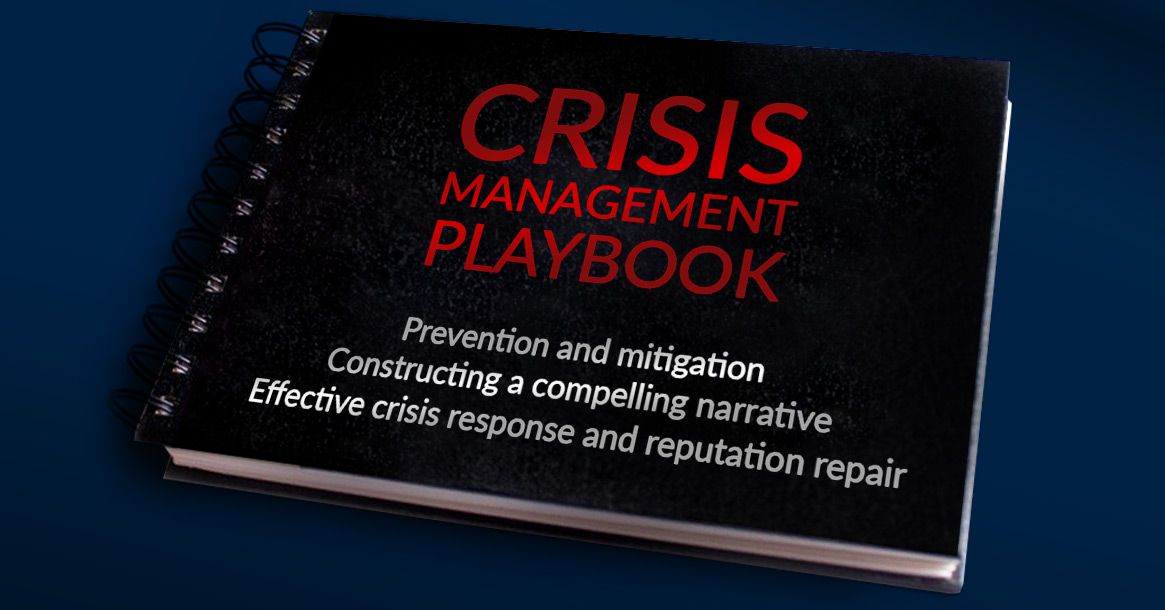Amidst practically unrestricted worldwide platforms from which to make accusations, leak information, or manufacture false accounts, a social media crisis can strike at any time, with the devastating potential to hurt your organization’s ability to do business. Moving at a phenomenal pace, social media has unquestionably changed the way the world shares information making your business’ crisis management plan more important than ever.
One solitary negative post or comment concerning even a well-established company can easily spin out of control as these narratives, whether or not they hold any merit, take hold and can severely impact an organization. When an adverse narrative captures the public’s attention, it can soon become amplified, resulting in even more widespread media coverage and ultimately resulting in potential financial loss for the organization.
Courtroom Sciences knows that preparedness, media relations, and crisis management are critical. Our critical communications experts help mitigate future litigation with psychology-based crisis communications strategies intended to prevent, mitigate, manage, and recover from a crisis.
How does a solid crisis management plan mitigate adverse outcomes?
Crisis management planning helps an organization anticipate potential crises and mitigate the potential adverse outcomes, including repetitional damage, financial loss, or legal repercussions. When it comes to managing a social media crisis, preparation is key, as subsequent reporting will build from the initial response, so it has to be right the first time. Planning allows organizations to identify unique areas of vulnerability through careful scenario planning and then respond quickly and appropriately to a crisis.
Preparation is Key to a Solid Crisis Management Plan
Due to recent events, businesses are likely more acquainted than ever before with how quickly and significantly a crisis can impact an organization. Despite this, many still find themselves operating on a reactive strategy, merely responding to events as they unfold rather than developing a solid, proactive approach. As long as organizations function reactively, they leave themselves vulnerable to unforeseen crises.
Preparation may feel nearly unachievable when an organization can’t predict from whom or where a social media crisis may come. Yet, after a crisis-triggering event occurs, an organization has a narrow window of time to respond effectively. Particularly with social media, when a possible crisis breaks, a company needs to be prepared to give its best response. The mere act of trying to repair an initial poor response often takes things from bad to worse, necessitating that it has to be right the first time.
Most Crises are Predictable
Even though when a crisis strikes may be unpredictable, most crises themselves are inherently predictable, mainly because the origin of most crises is the conduct of the organization and its members. While some organizations may not have yet faced a social media crisis, it is a risk facing businesses of all sizes and a situation that nearly every organization will encounter at some point.
Every organization has vulnerabilities, and identifying them is at the core of a solid crisis management plan. To adequately prepare, an organization should begin by:
● assessing where an organization’s vulnerabilities lie
● implementing preventative measures
● planning contingencies for a variety of scenarios
How an organization prepares for a crisis can have far-reaching repercussions. Once a business has identified the array of vulnerabilities they are facing, the next step is putting in place unassailable guidelines, standards, and principles for consistently operating in a way that minimizes the likelihood of those vulnerabilities being realized.
Why You Shouldn’t Rely on ‘Common Sense’
When a social media crisis breaks, it is essential to understand all stakeholders’ perspectives. An organization’s initial response should focus on creating a narrative that speaks to stakeholders, assuring them that justice will prevail and pledging that appropriate steps will be taken to ensure similar incidents do not occur in the future.
However, without a crisis management plan, an organization may instead rely on common sense, which can incite business leaders to rush to defend themselves rather than considering their audience’s perspectives. In many situations, this kind of tone-deaf or inadequate response, driven by common sense, is seen by stakeholders as self-serving, disingenuous, or misdirected.
Rather, proper crisis response displays genuine concern for stakeholders, acts aggressively to protect those interests, and displays its values through action with its key stakeholders. Organizations prepared to handle a social media crisis can often emerge with better reputations after the crisis has passed.
At Courtroom Sciences, we know that a company’s crisis team is incomplete unless it includes social psychology practitioners who are adept at creating psychology-based messaging that will resonate in a crisis. Courtroom Sciences crisis and litigation communications experts will assist in developing a highly responsive crisis response plan with policies and practices that protect and defend your company’s reputation. Speak with one of our critical communications experts to get started.
Be confident in achieving superior litigation outcomes. CSI has the expertise, track record, and capabilities to help you win.



